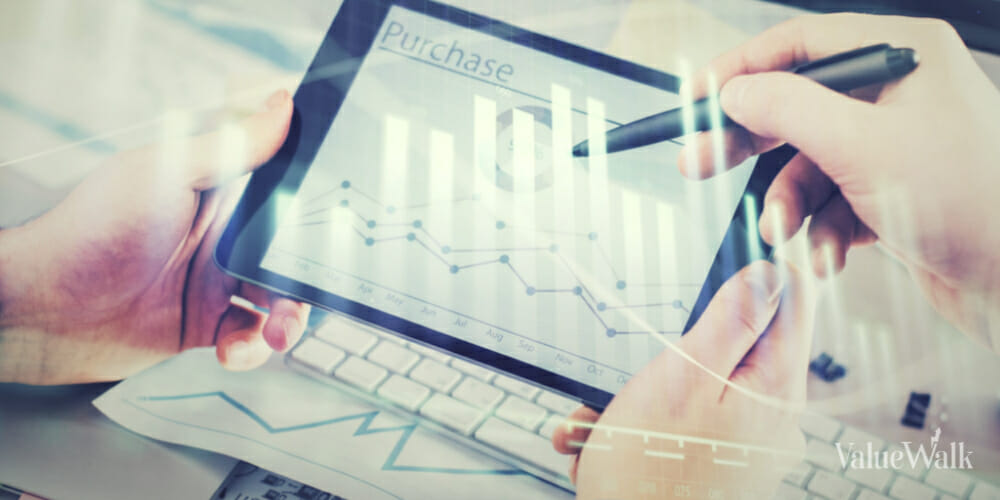Software mobile technology has helped shape and innovate our daily lives, providing us with solution-based options at the touch of our fingertips.
Nowadays, you can find an app for nearly everything, from keeping track of your fitness goals, to monitoring your sleeping patterns, mobile apps have revolutionized the way we organize our lives, plan our routines and even how we do business.
Q4 2022 hedge fund letters, conferences and more
Part of the transition towards an automated and technologically-driven economy is the introduction of mobile applications that help us better understand money, how to work more efficiently with it, and how we can manage our expenses.
Having frictionless access to the online world has meant that we are ever bound to interact with merchants, brands, and businesses around every corner on the internet or social media. These interactions often make it easier for us to spend our money quickly and without giving the transaction much thought.
Though consumerism on the back of the globalized economy does play its part in how people spend and work with money, it’s become increasingly challenging for many people to properly save and keep tabs on their everyday expenses.
A Bankrate survey from February 2022 revealed that around 54% of millennials and 46% of Gen Zers said that their emergency savings had declined since 2020. Furthermore, millennials, those 25 to 35 were found to be more likely than other generations to have a higher credit card debt compared to a savings balance.
It’s not just the recent pandemic that has made it harder for younger generations to save money, or work with their money more efficiently. The soaring cost of living has also added major financial headwinds for many people.
The higher cost of goods and services, student loan debt, and soaring interest rates have made it near impossible for many people to keep track of their expenses, even with inflation figures easing in recent months due to the Federal Reserve increasing the cost of borrowing.
Balancing the books is not easy, and for individuals who have limited financial exposure or knowledge, it would seem near impossible to get a grip on their expenses. Working with money shouldn’t be an anxiety-induced exercise, even more so, it shouldn’t be considered an expert-level activity that only the wealthy and highly educated understand.
Mobile Apps To Keep Tabs On Your Finances
With the help of technology and mobile software, it’s now possible to keep a better table on personal expenses, and in the coming year, we recommend you have a look at these mobile apps.
Expense Manager
The first option is Expense Manager, a fully integrated mobile application that allows users to keep track of their debt and income. On top of this, it’s possible to set payment alerts for debit orders and file bills or receipts in one organized place.
Some features allow users to convert currencies and calculate interest for certain purchases. The app has been designed with the consumer in mind and focuses primarily on the most important financial aspects any person needs on a day-to-day basis.
While the application may be free to use, and compatible with most mobile operating systems, the platform does lack a few tools and features that would make it world-class.
YNAB
While YNAB or You Need A Budget comes with a 34-day free trial, users will be required to sign up for a monthly subscription. And although there is a price to pay, YNAB offers users access to a plethora of financial tools and resources that help to improve their financial literacy.
YNAB is mostly designed to help individuals understand the basics of creating a budget, how to follow a budget, and how to stay motivated throughout the process. The application has tutorials that allow users to tackle more advanced financial problems and can be automatically linked to their bank account.
By linking the app to your bank account you will be able to keep track of spending and use the information as part of the monthly budget analysis. The platform may seem a bit advanced at first for beginner users, but YNAB was designed to help people set savings goals and achieve them by following a predetermined budget.
Mint
Mint is another popular budget and expense tracking tool that is compatible with all types of mobile operating systems. Users can set up different budget categories, and the application will then provide information on how much a person is allowed to spend on specific items.
Additional features such as payment due date alerts, balance tracking, and spending analysis assist individuals to garner more prolific financial habits over time. One of the features that help Mint stand out from the crowd is the integrated features that help users avoid missing payments, expensive fees, and overdrafts from their bank account.
Mint may seem a bit all over the place at first, as it does come with a whole host of features of financial tools that can help any person keep better tabs on their finances, and it is completely free to use with no monthly subscription.
Wallet
For individuals that are completely new to keeping track of their finances, and looking for something simple to use, Wallet comes with the most basic budgeting features that help users keep track of expenses, financial goals, and recurring payment dates.
Wallet is straightforward in what it provides users and doesn’t come with a lot of bells and whistles. Perhaps the limited features and tools are what make it one of the easiest apps to use, as the user interface is a nearly seamless experience.
The main objective of Wallet is to help people keep track of their near and long-term financial goals. The app lets a person set up a savings target, and automatically calculates financial adjustments that are required to achieve this goal. An easy-to-use app for people looking for something simple, yet functional.
Quicken
Considered to be one of the most well-established finance apps in the consumer market, Quicken comes with a host of features that helps individuals manage their money more efficiently, plan for future goals, and keep track of all debit and other expenses.
Quicken also comes with an investment coaching feature, which gives users access to information related to investment opportunities. From the application, a person will be able to pay bills and track the value of their assets, and business owners can manage business-related expenses via the platform.
Despite being so feature-rich, Quicken is not completely free to use, and users may be required to sign up for an annual subscription. There is however a 30-day money-back trial for users who want to test drive it, before fully committing.
All-in-all, Quicken comes with an elaborate list of features that is suitable for both personal and business finances and is perfect for any person who wants to control all their financial tabs.
To Finish Off
Another year brings a whole new set of challenges, and this year will seem like the year many of us make budgeting and saving a top priority. Working with money can be intimidating at first, but with the right set of tools in the palm of your hand, you will be able to track your spending, improve your financial literacy and boost your budgeting skills in a short few months.













